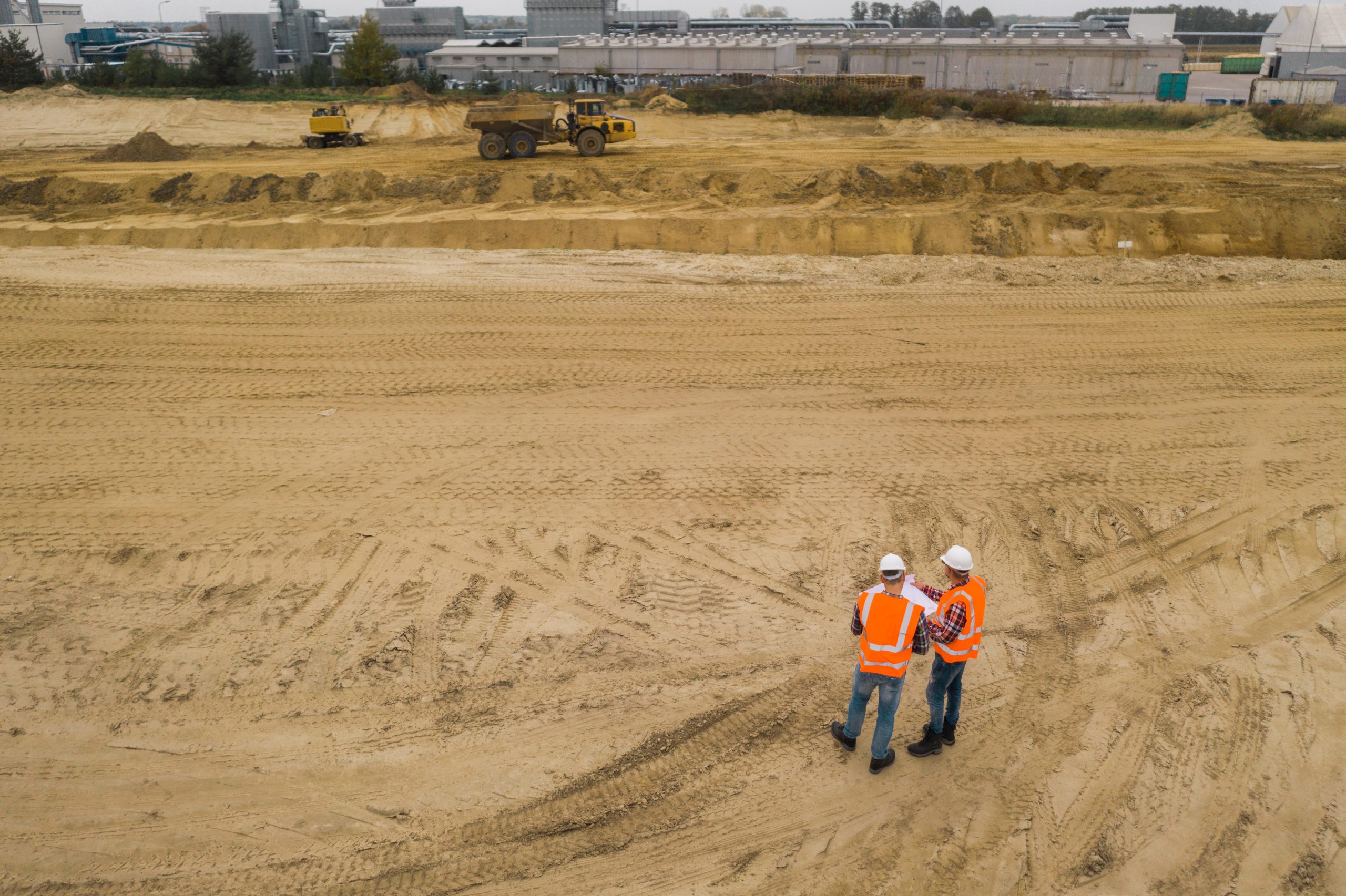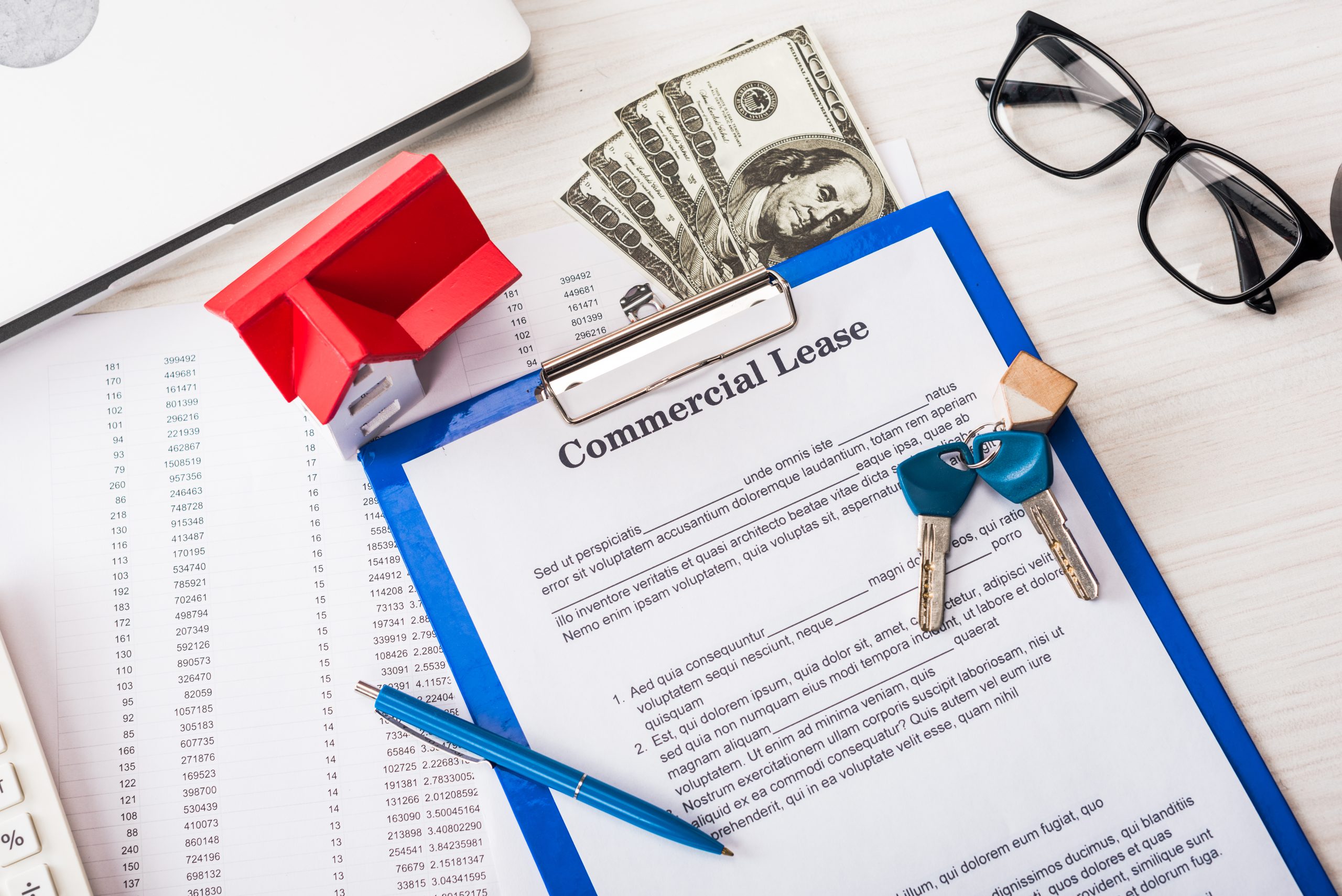Commercial leases establish a legally binding agreement between landlords and business tenants. By outlining terms for property use, rent, maintenance, and legal obligations, commercial leases help create the conditions for business growth and success.
However, landlords and tenants must understand different lease types and terms to ensure mutually beneficial agreements.
This guide will help you understand commercial leases in the UK, offering insight into different lease types, terms, and processes.
Commercial Lease Types
Full Repairing and Insuring Lease
A full repairing and insuring lease (FRI Lease) is a commercial lease in which the tenant covers the repair and insurance costs for the property they lease.
By entering an FRI Lease, the tenant is responsible for repairs even if the disrepair existed when the lease was granted. To protect themselves, tenants should get an independent survey before signing the lease, which they can use as a negotiation tool or to create a Schedule of Condition to limit liability.
While some FRI leases are limited to internal areas, others extend to the entire building. Tenants may negotiate exclusions to avoid significant repair costs in some cases.


Tenants should also be aware that repair obligations remain a liability after the lease expires. Landlords will typically inspect the property at lease expiry and issue a schedule of dilapidations which details repair costs and potential losses.
As these claims can be substantial, tenants should seek professional advice before signing an FRI lease.
Please note – some commercial property transactions offer an ‘indirect FRI lease’, which means the tenant pays for repairs and insurance through a service charge or other means.
Internal Repairing Lease
An Internal Repairing Insuring lease (IRI Lease) is where the tenant has a narrower liability for maintenance, decorations, repairs and insurance. Liabilities are typically confined to the internal parts of the property the tenant occupies.
When entering an IRI Lease, it’s sensible to check that the landlord is liable for repairing, maintaining and insuring the common parts and building exterior. In some cases, the landlord may insure the entire building and recover costs for insurance or maintenance from the occupiers through a service charge.
The specific arrangements will be detailed in the lease.
Landlords usually grant IRI leases for multiple occupation buildings where tenants have repairing liabilities for the part of the building they occupy.


Short-Term Leases
A short-term commercial lease typically lasts a few months to several years.
Many modern business owners prefer short-term leases due to their flexibility and shorter lease terms. A short-term commercial lease may cover a 1 to 5-year term, meaning the rent value is lower than a 10-to-20-year lease.
Short-term leases offer several other advantages, including:
Flexibility: Short-term leases allow more straightforward termination or renewal according to landlord and tenant needs.
Rent and rent reviews: Short-term leases typically feature more frequent rent reviews. As rent increases are often linked to market conditions, tenants and landlords can negotiate appropriate rental costs.
Tenant improvements: A short-term lease means tenants are usually only responsible for maintaining the property’s interior. Tenants may also have an improved chance of limiting repair obligations to a schedule of conditions, meaning they’ll spend less on repairing and restoring the premises after vacating.
Tenure security: Short-term leases typically do not offer statutory security of tenure. This feature means the landlord can choose not to renew the lease without providing grounds for termination.


Ground Leases
A ground lease agreement allows a tenant to develop property during the lease period before returning it to the property owner.
Commercial landlords often use ground leases to lease land for 50 to 99 years to tenants who build on the property.
This lease type benefits tenants who can’t afford to buy land but want to build property. Meanwhile, landlords get a regular income and retain control over their property’s use and development.
Many landlords use ground leases to retain property ownership, avoid capital gains tax, and generate income.
Meanwhile, tenants generally assume responsibility for expenses including:
- Construction
- Repairs, renovations and improvements
- Taxes and insurance
- Financing costs

Key Commercial Lease Terms

Alienation: Refers to a tenant’s right to transfer their leasehold interest to another party. This can happen in the following ways:
Assignment: The tenant transfers their lease to a new tenant, who assumes all obligations.
Subletting: The tenant rents out part or the whole property while retaining responsibility for the lease.
Charging: The tenant uses the lease as loan security. This typically requires landlord consent.
Service Charge: Covers the management of shared areas in multi-occupancy properties. Service charges typically cover:
- Cleaning, security, and maintenance of communal spaces
- Repairs to the building’s structure and systems
- Insurance and management fees
- Rent Deposit Deed
A rent deposit deed is an agreement where the tenant provides the landlord a security deposit. Landlords can typically access these funds if:
- The tenant fails to pay the rent
- The tenant breaches lease terms
- There are outstanding liabilities when the lease expires


Guarantor or Surety: A third party, often a company director or parent company, who guarantees the tenant’s lease obligations. A guarantor is usually required when:
- The tenant is a new business with a limited financial history
- The landlord seeks additional security for rent and other obligations
Dilapidations: Refers to a tenant’s obligation to repair or restore the property at the lease end. This includes:
- Fixing damage beyond normal wear and tear
- Reinstating alterations
- Meeting legal and lease obligations for repairs
Schedule of Condition: a record of a property’s state when a lease begins. It helps:
- Limit tenant liability for pre-existing defects
- Provide evidence in dilapidation disputes
- Ensure fair end-of-lease assessments
Break Clause: Allows a tenant or landlord to terminate the lease early, subject to specific conditions, including:
- Providing written notice
- Meeting rent and repair obligations
- Returning the property in the required condition


Rent Review: Adjusts the rent at regular intervals during the lease. Common rent review methods include:
- Market rent review – Aligns rent with current market rates.
- Fixed increase – Predetermined rent rises at agreed stages.
- Index-linked review – Rent adjusts based on inflation indices like the Rental Price Index (RPI)
Legal Frameworks and Best Practices
The Lease Code
The Code for Leasing Business Premises in England and Wales 2007 (updated in 2020) details best practice guidelines for lease negotiations. Although non-binding, it encourages fairness and transparency by:
- Ensuring lease terms are clear and reasonable.
- Advising landlords to provide upfront key lease information.
- Promoting tenant-friendly provisions, such as fair break clauses and rent review terms.


RICS Service Charge Code
The Royal Institution of Chartered Surveyors (RICS) Service Charge Code sets out principles for fair service charge management, including:
- Transparency in cost allocation and expenditure.
- Reasonable and proportionate charges based on actual costs.
- Clear communication between landlords and tenants, including timely issue of service charge budgets and reconciliations.
Following this code helps prevent disputes and ensures fair and justified service charges.
Dispute Resolution
Common lease disputes include disagreements over:
- Rent reviews
- Service charges
- Dilapidations
Disputes can be resolved through the following mechanisms:


Mediation – A neutral third party helps negotiate a voluntary settlement.
Arbitration – An independent arbitrator makes a legally binding decision.
Expert Determination – A specialist assesses the dispute and provides a ruling.
Court Proceedings – A last resort if other methods fail.
Dispute resolution methods can save time and legal costs while preserving landlord-tenant relationships.
Conclusion
Understanding commercial leases and their key terms is essential when making property transactions. Whether negotiating lease terms, managing costs, or preparing for rent reviews, landlords and tenants must understand their rights and obligations.
Seeking professional legal advice can further protect interests and prevent costly disputes.
Need expert, cost-effective help with your commercial property purchase?
Toomey Legal offers quality commercial property advice at value-driven rates. We deliver our reliable expertise quickly, professionally, and responsively, offering practical solutions at an agreed fixed rate.
Call now for a quote or fill out the below form with your enquiry details.
